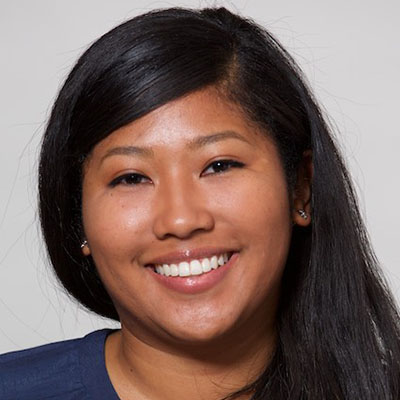The Howard Hughes Medical Institute (HHMI) plays a powerful role in advancing scientific research and education in the United States. Anna Sorace, Ph.D., assistant professor in the University of Alabama at Birmingham Department of Radiology, and her student in cancer biology, Tiara Napier, Ph.D., received an HHMI Gilliam Award. 
This award will support Napier during her Ph.D. research. Napier's research project focuses on Positron Emission Tomography (PET) imaging to identify early predictive biomarkers of response to immunotherapy and chemotherapy in triple negative breast cancer by noninvasively quantifying hypoxia (FMISO-PET) imaging and activated T-cells with Granzyme B (GZP) PET imaging.
In addition to research support, this award also provides supplemental funds to support diversity and inclusion efforts at the graduate level for other trainees. These funds are dedicated to trainees' attendance at leadership and career-focused meetings. This opportunity allows Sorace and Napier, as mentor and trainee, to recieve unique training focused on fostering the development of a diverse and more inclusive academic scientific environment.

HHMI plays a powerful role in advancing scientific research and education in the United States. It's program in biomedical research rests on the conviction that scientists of exceptional potential, commitment, and imagination will make fundamental discoveries for the betterment of human health if they receive the resources, time, and freedom to pursue challenging questions. The institute’s science education programs support initiatives with the power to transform education in the life sciences for all students, especially those from populations historically excluded from and underrepresented in science. Its objectives are to recruit and develop students with the potential to become future leaders of science and science education, to partner with faculty and institutions committed to advancing diversity and inclusion in science, and to promote scientific literacy. Just as today’s researchers solve complex questions by working across scientific disciplines and integrating tools from these disciplines, the institute seeks to support science education by integrating a variety of tools and approaches that will engage students in science.